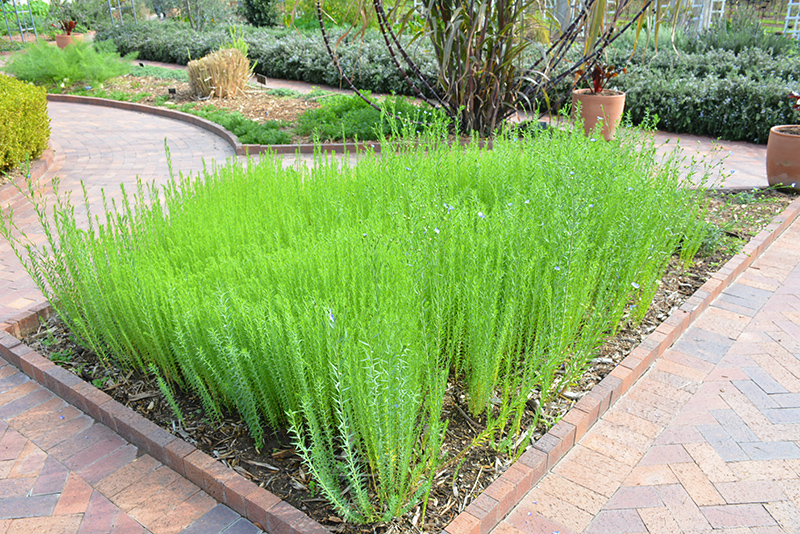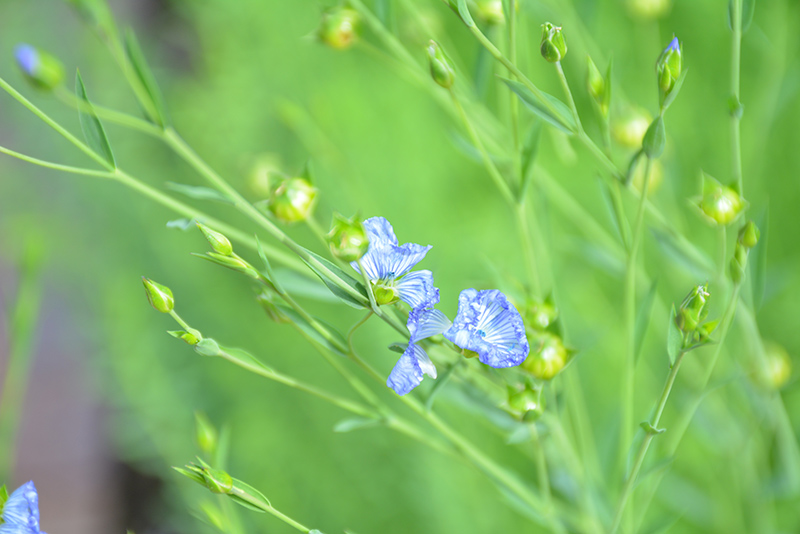* This is a "special order" plant - contact store for details
Height: 3 feet
Spread: 24 inches
Sunlight:
![]()
![]()
Hardiness Zone: (annual)
Other Names: Linseed
Description:
Historically a very useful plant, providing linseed oil, and the fibre used to make linen; a beautiful and easily grown annual, producing masses of brilliant sky blue flowers in summer; great massed in beds or borders
Ornamental Features
Common Flax features airy sky blue cup-shaped flowers with buttery yellow eyes at the ends of the stems from early to late summer. Its grassy leaves are light green in colour. The foliage often turns gold in fall.
Landscape Attributes
Common Flax is an open herbaceous annual with an upright spreading habit of growth. It brings an extremely fine and delicate texture to the garden composition and should be used to full effect.
This plant will require occasional maintenance and upkeep, and should be cut back in late fall in preparation for winter. It is a good choice for attracting birds, bees and butterflies to your yard, but is not particularly attractive to deer who tend to leave it alone in favor of tastier treats. It has no significant negative characteristics.
Common Flax is recommended for the following landscape applications;
- Mass Planting
- General Garden Use
- Naturalizing And Woodland Gardens
Planting & Growing
Common Flax will grow to be about 28 inches tall at maturity, with a spread of 24 inches. It tends to be leggy, with a typical clearance of 1 foot from the ground, and should be underplanted with lower-growing perennials. This fast-growing annual will normally live for one full growing season, needing replacement the following year.
This plant does best in full sun to partial shade. It prefers dry to average moisture levels with very well-drained soil, and will often die in standing water. It is considered to be drought-tolerant, and thus makes an ideal choice for a low-water garden or xeriscape application. It is not particular as to soil type, but has a definite preference for alkaline soils. It is somewhat tolerant of urban pollution. This species is not originally from North America..
* This is a "special order" plant - contact store for details


